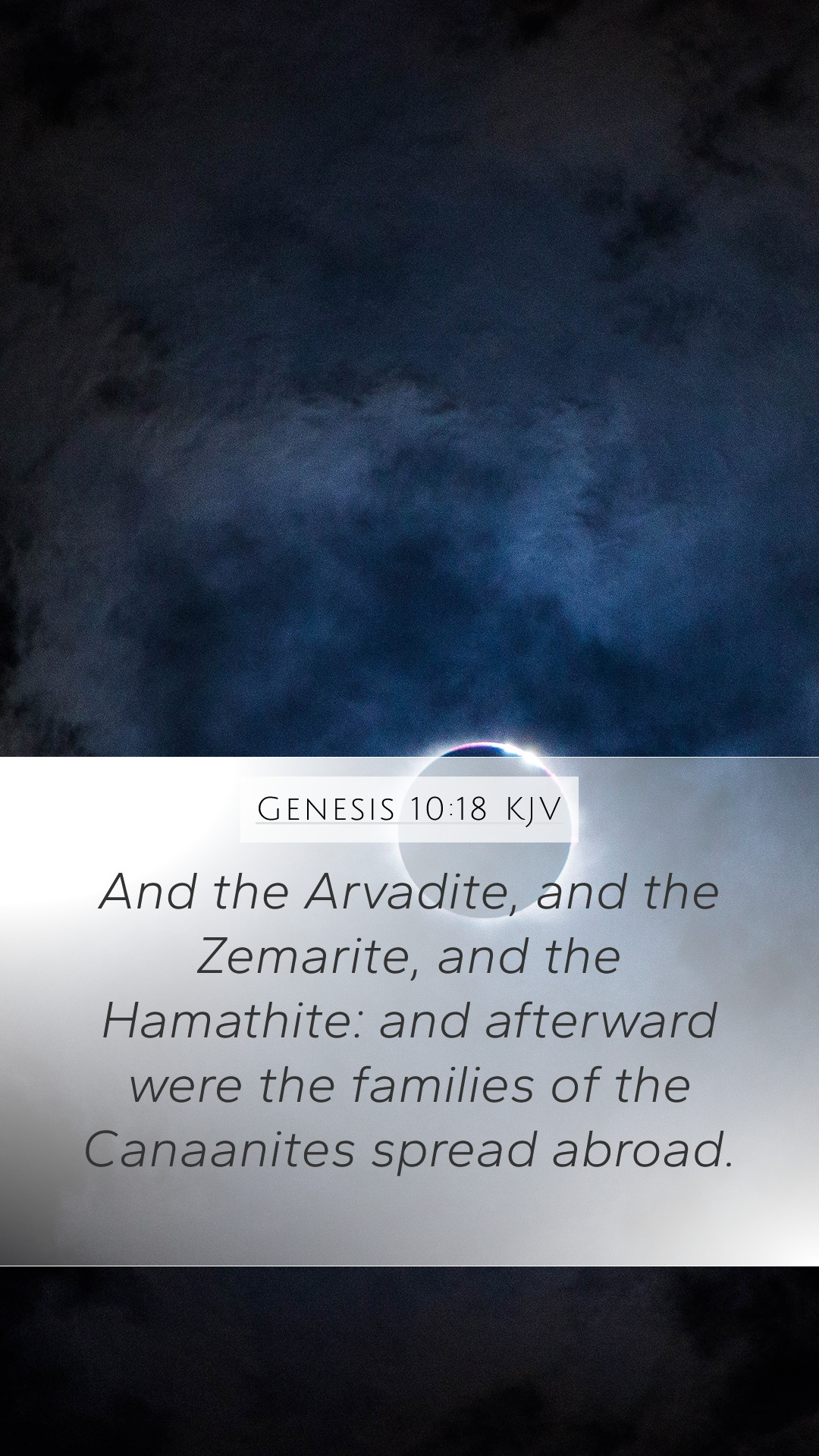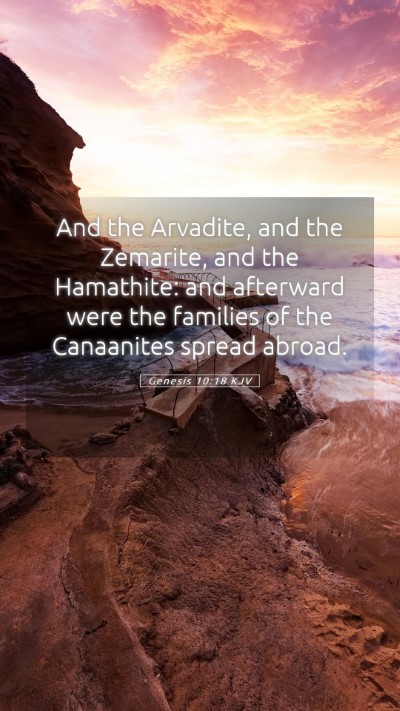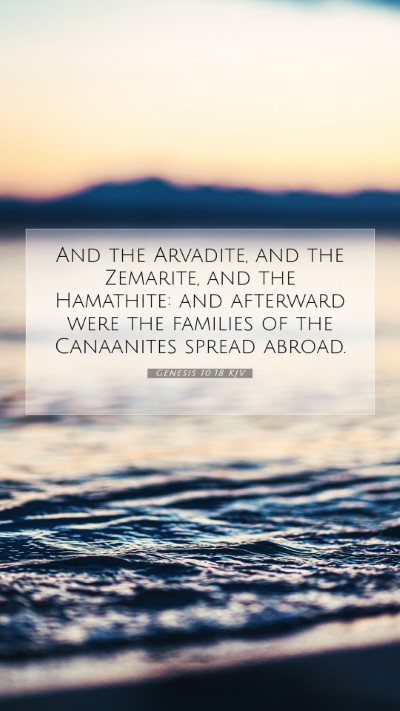Understanding Genesis 10:18: A Deep Dive into Biblical Meaning
Genesis 10:18 states: "And the inhabitants of the coastlands are the Canaanites," referring to the descendants of Ham and outlining the dispersion of nations after the Flood. This verse is traditionally interpreted as a pivotal one in understanding the geographical and ethnic makeup of the early world.
Key Themes in Genesis 10:18
-
Genealogy and Ethnic Origins: This verse emphasizes the importance of genealogies in the Bible, showcasing how nations arose from specific family lines.
-
Geographical Significance: The mention of coastal inhabitants suggests a connection to trade, culture, and confrontation between nations.
-
Divine Sovereignty: The verse underscores God's ongoing plan for humanity, as seen through the lineage of Noah's sons.
Commentary Insights from Public Domain Sources
Matthew Henry's Commentary: Henry notes that this passage reveals the beginning of the Canaanites, who would later play a significant role in the history of Israel. He emphasizes the idea that nations are established according to divine purpose and providence, hinting at the future conflicts and conquests that would unfold in the Promised Land.
Albert Barnes' Commentary: Barnes provides insight into the coastal regions occupied by the Canaanites, stating that they are linked to various maritime activities that would characterize their society. He also explores the broader implications of the Canaanites' actions in Scripture, pointing to their idolatry and how it shaped their destiny.
Adam Clarke's Commentary: Clarke highlights the importance of understanding the historical context of this verse, noting the significance of the Canaanites in relation to Israel's history. He delves into the cultural practices of these early nations, contrasting their societal norms with the ethical mandates given to Israel.
Biblical Exegesis and Analysis
The exegesis of Genesis 10:18 invites us to explore both the literal and the symbolic aspects of the text. It illustrates how the Bible does not merely recount history but also serves as a guide to understanding the moral and spiritual implications of the nations' behaviors in God's overarching narrative.
How to Interpret This Verse
Interpretation of Genesis 10:18 involves examining the socio-political dynamics of ancient Canaan and its implications for Israel's future. Understanding the verse's placement in the genealogical list helps illuminate the transition from post-Flood chaos to the organization of human society under God's oversight.
Applications in Daily Life
These ancient genealogies might feel distant, yet they resonate with contemporary themes of identity, legacy, and the impact of our ancestors on our lives today. Reflecting on Genesis 10:18 encourages modern readers to consider how their actions might shape future generations.
Related Bible Cross References
- Genesis 9:18-19 - The beginnings of post-Flood nations
- Deuteronomy 7:1 - The significance of Canaanite nations in relation to Israel
- Joshua 3:10 - The Canaanites in the context of Israel's entry into the Promised Land
Conclusion
Genesis 10:18 serves as a profound example of how the origins of nations shape biblical history and theology. By studying this verse, one gains deeper insights into not only the specific families mentioned but also the broader divine narrative guiding humanity’s story. This exploration reflects the value of engaging with Scripture for personal growth and community discussion through Bible study groups, online courses, and other Bible study resources.


